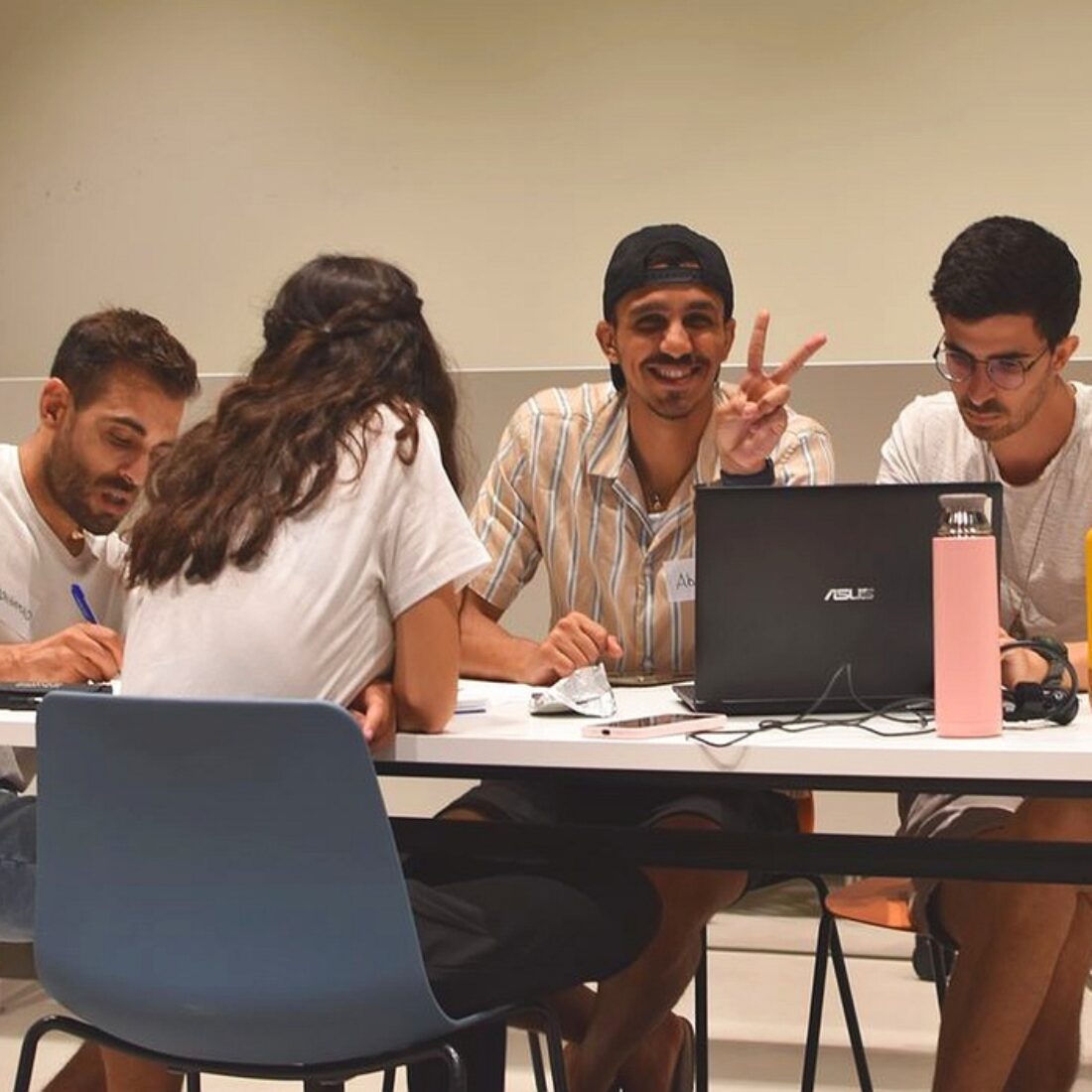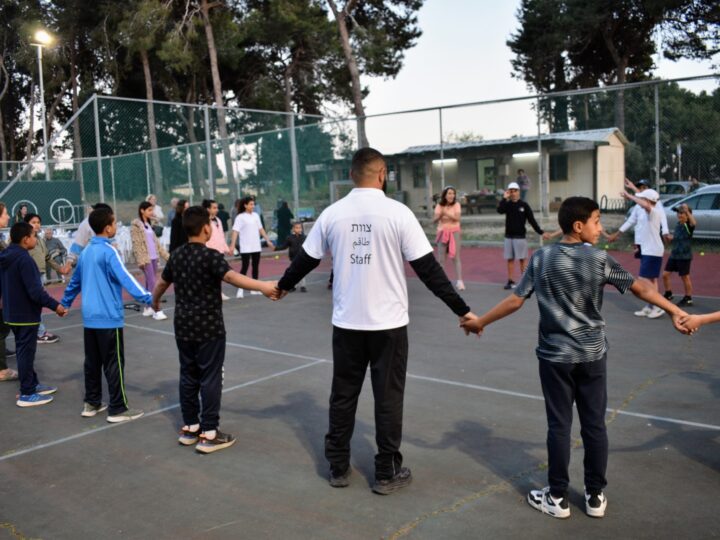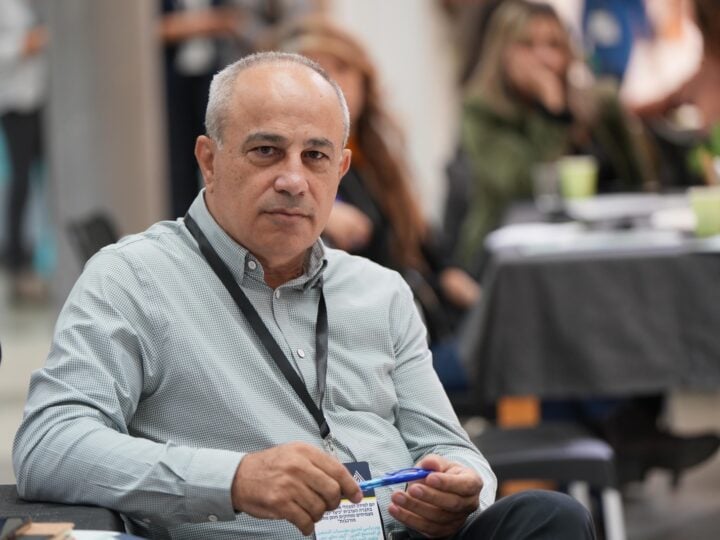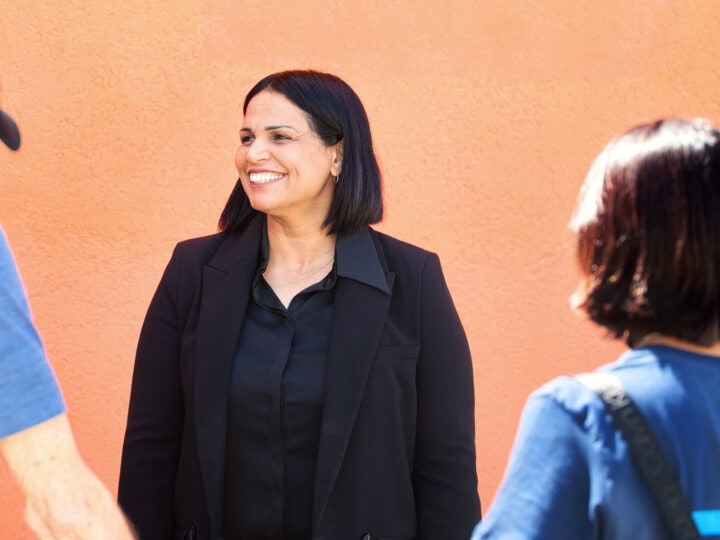Israeli software developer Naama Angel thought she wouldn’t be easily surprised upon participating in a conflict dialogue workshop.
“I came very open-minded and thought that I’ll just meet a wide range of people. But it changed my perception,” admits the 25-year-old from Tel Aviv.
“I gained more understanding about how people on the other side experience or perceive things, and gained more empathy and identification with someone else’s narrative,” she notes.
For Salah Hussein, a 29-year-old Palestinian tech entrepreneur from Nablus, discussing the multiple perspectives to the Israeli-Palestinian conflict also left a strong impression.
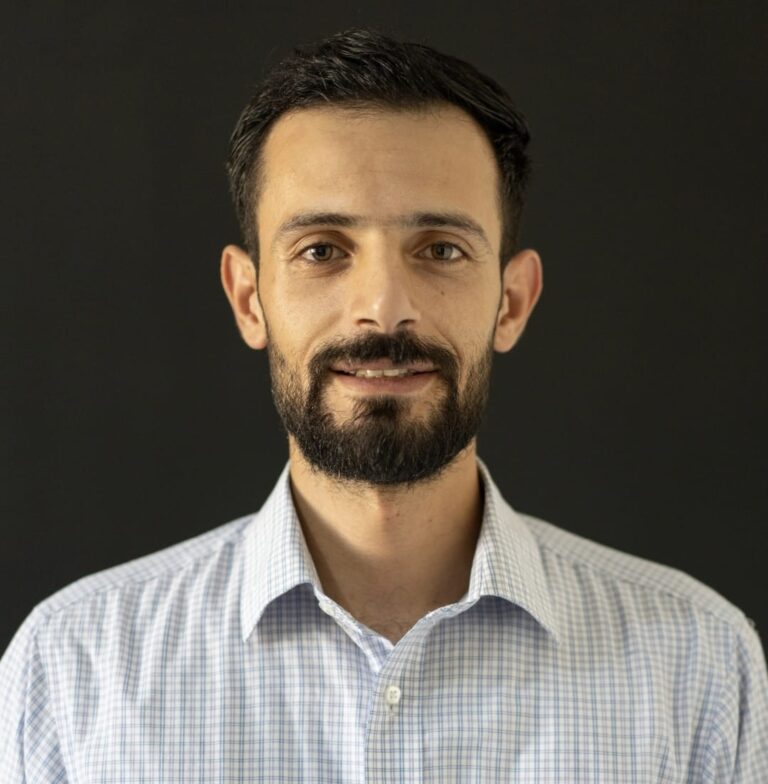
“The most important thing that I really enjoy in these seminars or meetups is sharing your vision, your story, your perspective from your side and letting the other side know what is happening on the ground directly – not from the news or anyone else but to discuss it directly with the other side – it’s the most important thing, I think, when participating at such an event.”
Angel and Hussein both participated in seminars run by Tech2Peace, an Israeli-Palestinian NGO that provides high-tech and entrepreneurial training alongside conflict dialogue to young Israelis and Palestinians from Israel and the West Bank.
Israeli hope
“The Tech2Peace seminar has two sides – the tech side and the dialogue side,” explains Hussein.
“On the tech side, it was daily workshops on coding – that’s what I chose, but they also they have Python coding, video editing, illustration and web design,” he says.
“The second half of the day was the dialogue side, where the Palestinian fellows and the Israeli fellows discuss the situation happening around us, the future, and how we can be part of a solution for the Palestinians and Israelis in our region.”
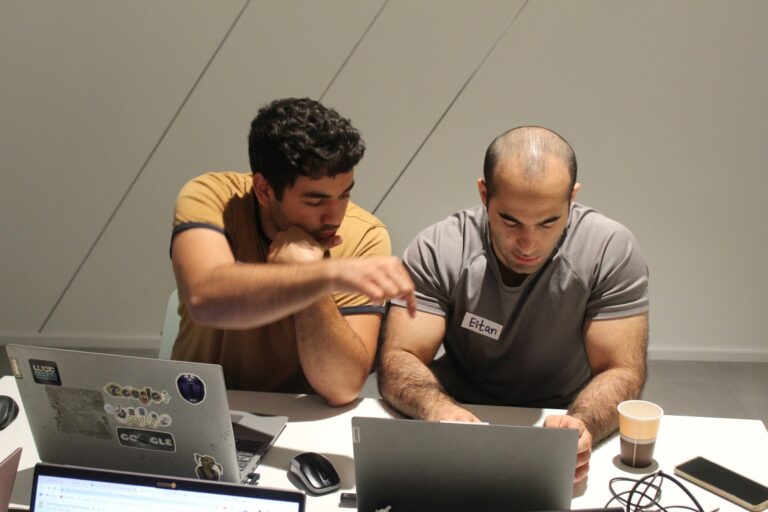
Tech2Peace, founded in 2017 and winner of the 2018 Israeli Hope Prize, receives funding from family foundations and USAID. It partners include Google for Startups and Microsoft. It has 450 alumni, with 600 planned by the end of 2023.
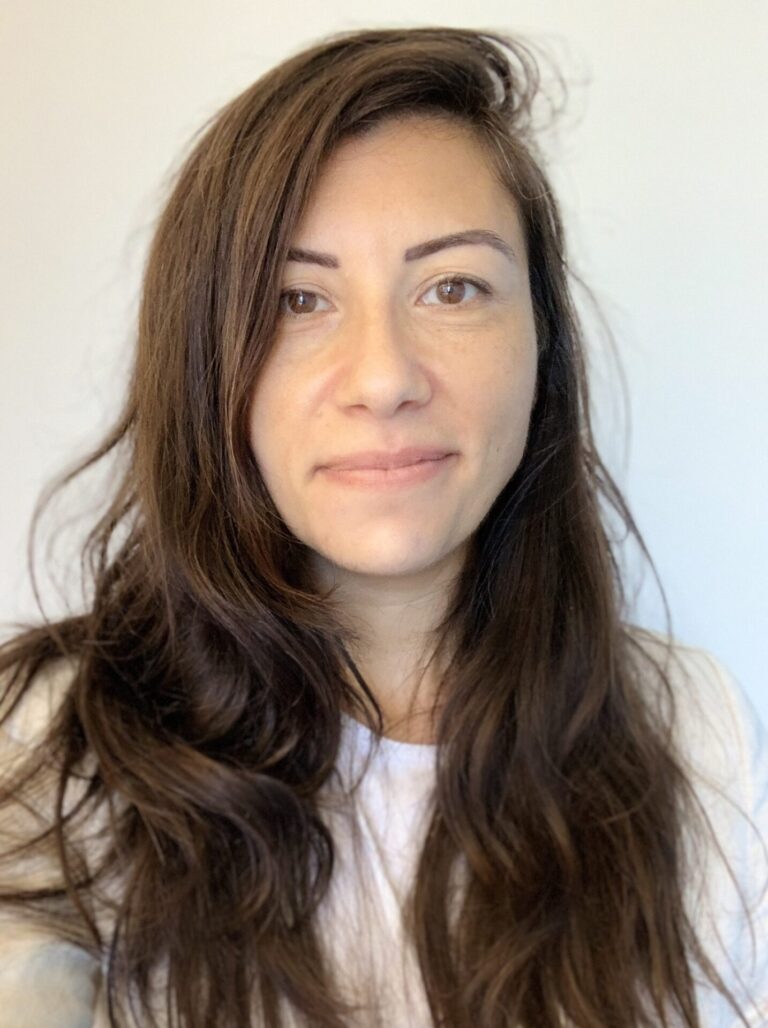
“There are three founders, two Jewish Israelis and one Palestinian East Jerusalemite,” explains Tech2Peace CEO Hela Lahar.
“Abeer [Bandak] and Uri [Rosenberg] were in the dialogue worlds and the majority of the population they were reaching was ‘preaching to the choir’ – people who were already eager or at least interested in hearing the ‘other.’”
One of their participants, Tomer Cohen, later became the third founder.
“He came in with a very entrepreneurial spirit and in an attempt to grow the reach of the program suggested to really harness the ‘Startup Nation,’ this very thriving tech scene in Israel toward this goal of dialogue and encounter and communication,” she adds.
“That really allowed the organization to grow its reach, as it became the first program really being a combination of dialogue and entrepreneurship training. A lot of people came for the tech and for the entrepreneurship and kind of stayed with the dialogue.”
Questions of identity
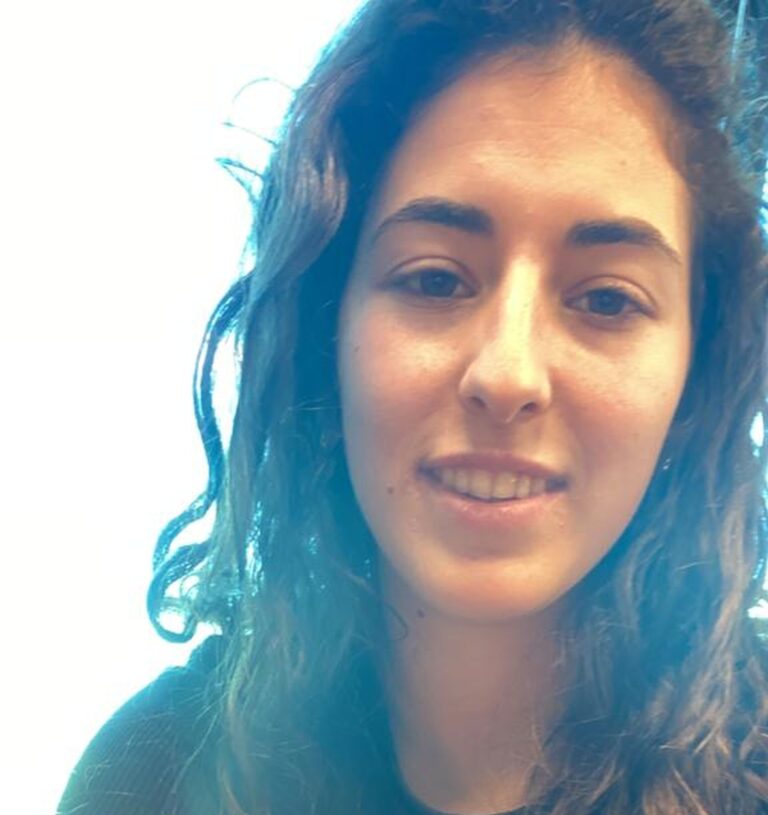
The program, its participants note, is not without its challenges.
“I think there was this element of questioning myself,” Angel says.
“I was suddenly wondering about my identity, what it conveys and how others see me because I’m a Zionist and served in the army, and to deal with myself and the consequences of this.”
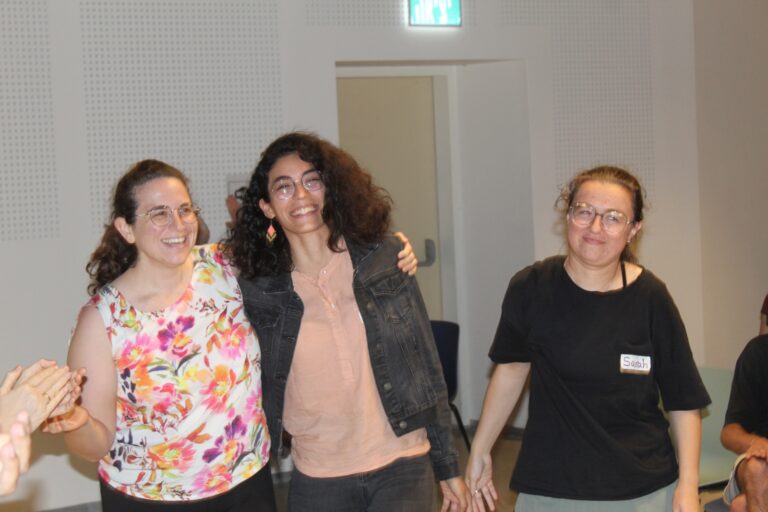
Hussein, meanwhile, points to the challenge of being identified in Palestinian society as a “normalizer” of relations with Israel.
“In general, not only about me, but for most of the Palestinians who participated in the seminar [the challenge] is the normalization. Because you participate in workshops, seminars etc. with Israelis, you put yourself in the front of being a normalizer.”
Still, both Angel and Hussein emphasize the positive and friendly atmosphere in which the seminars are conducted.
“For me, a particularly good experience was the social aspect of things – you talk and disagree, but at the end of it everyone likes each other and has fun together,” Angel says.
“To be honest, these are some of the best dialogue sessions I ever had,” Hussein says. “You entered the session smiling and laughing had a lot of discussion – deep and hard – but you left the session as smiling as when you entered. That’s the part I really liked.”
3 insights
Tech2Peace, Lahar notes, aims for its participants to graduate with three main insights.
“It’s really about demonstrating that through collaborative work we can enhance and better each respective community,” she says.
“We do two main things to support that: one is active listening and understanding that listening is not validating. We want you to sit there and listen to a different narrative or life story than you know and understand. Just being exposed to something new is what I would call radical listening. The most you will get out of our program is if you can get yourself in the shoes of the person you’re listening to for the duration of the time that you’re listening to them.
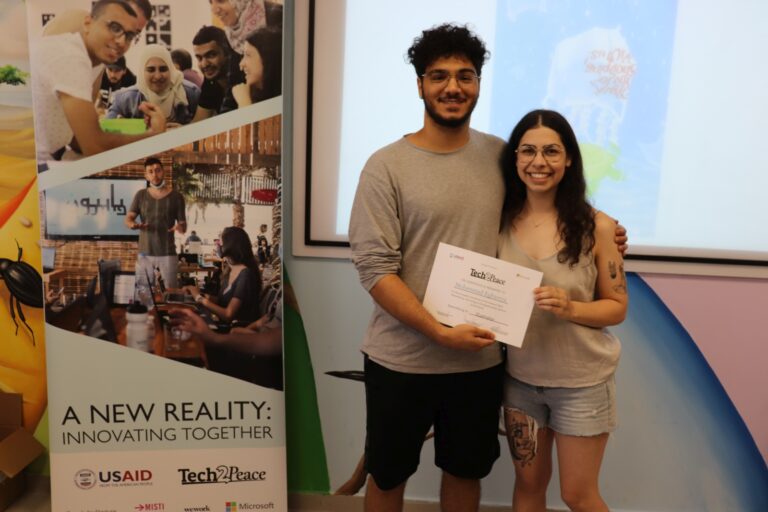
“The second is giving people tangible tools to try different tech trainings. Each person needs to choose a course that they do throughout the seminars. There are no prerequisites, just to give them the opportunity to try out something but also to leave with something tangible – a glimpse into entrepreneurship and different tech capabilities so that they can expand on these tools in our advanced training.”
These advanced trainings are part of Tech2Peace’s model to ensure a thriving alumni network that keeps on giving forward – Angel, for example, now teaches web development during the seminar – and maintaining community engagement.
“I always say that our generation, the young generation, has a new way of thinking, a new kind of solution, but they need someone to light their flames, to lead the change,” Hussein concludes.
“Being a young person who’s been part of this seminar and this kind of dialogue puts us on solid ground that helps us to be the next facilitators. I think we have a better vision than the older people doing the facilitating.”
For more information, click here.




